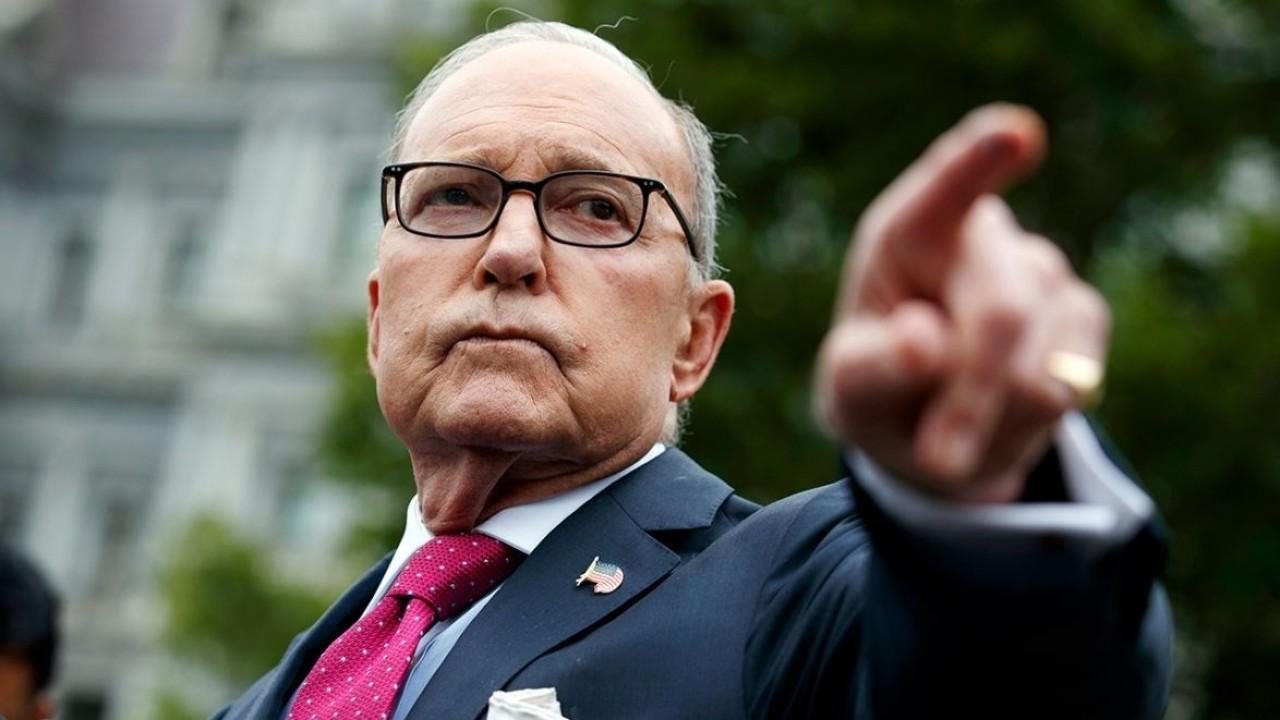Kudlow says US economy in 'very strong territory' in 2020
Manufacturing, job growth and the stock market all boosted the economy in January, Kudlow said
President Trump's chief economic adviser Larry Kudlow, on the heels of the stronger-than-expected January jobs report, touted the strength of the U.S. economy.
"I think we're in very strong territory right now," Kudlow told FOX Business' Stuart Varney during an interview on Friday, pointing to solid job creation, a seeming rebound in manufacturing after a six-month slump, strong housing numbers and a 1,000-point boost in the stock market.
U.S. hiring topped expectations in January, as the economy added 225,000 jobs while unemployment ticked up slightly to 3.6 percent, near a half-century low. It marked the 112th month of straight gains. Over the past three years, take-home pay (after taxes) has gone up by $5,000, Kudlow said.
GET FOX BUSINESS ON THE GO BY CLICKING HERE
"People say we're coming to the end of the cycle," he said. "I don't see evidence that we're coming to the end of the cycle. The president has said time and time again he's going to say with these policies. We are not going socialist."
Despite the healthy economic indicators and the so-called "blue-collar boom," Kudlow said he "wouldn't mind" seeing officials at the Federal Reserve "be a little bolder" during their March policy-setting meeting.
At their most recent meeting, policymakers at the U.S. central bank voted unanimously to hold interest rates steady, reaffirming its wait-and-see approach despite growing concerns about China's widening coronavirus outbreak.
PRIVATE SECTOR JOB GROWTH BLOWS PAST WALL STREET'S EXPECTATIONS IN JANUARY WITH 291,000 ADDED
In their statement accompanying the decision, policymakers at the U.S. central bank cited low unemployment, solid job growth and inflation below their preferred 2 percent level as the reason for pressing pause on rates.
The benchmark federal funds rate has been at a range between 1.5 percent to 1.75 percent for the past few months. Traders are currently pricing in a 10 percent chance of a rate cut at the next meeting.




















